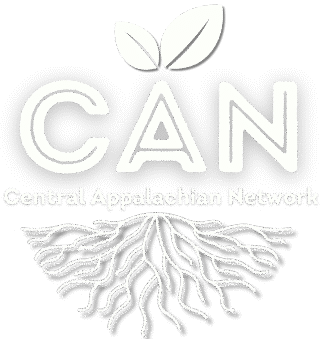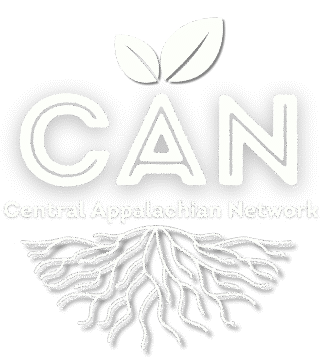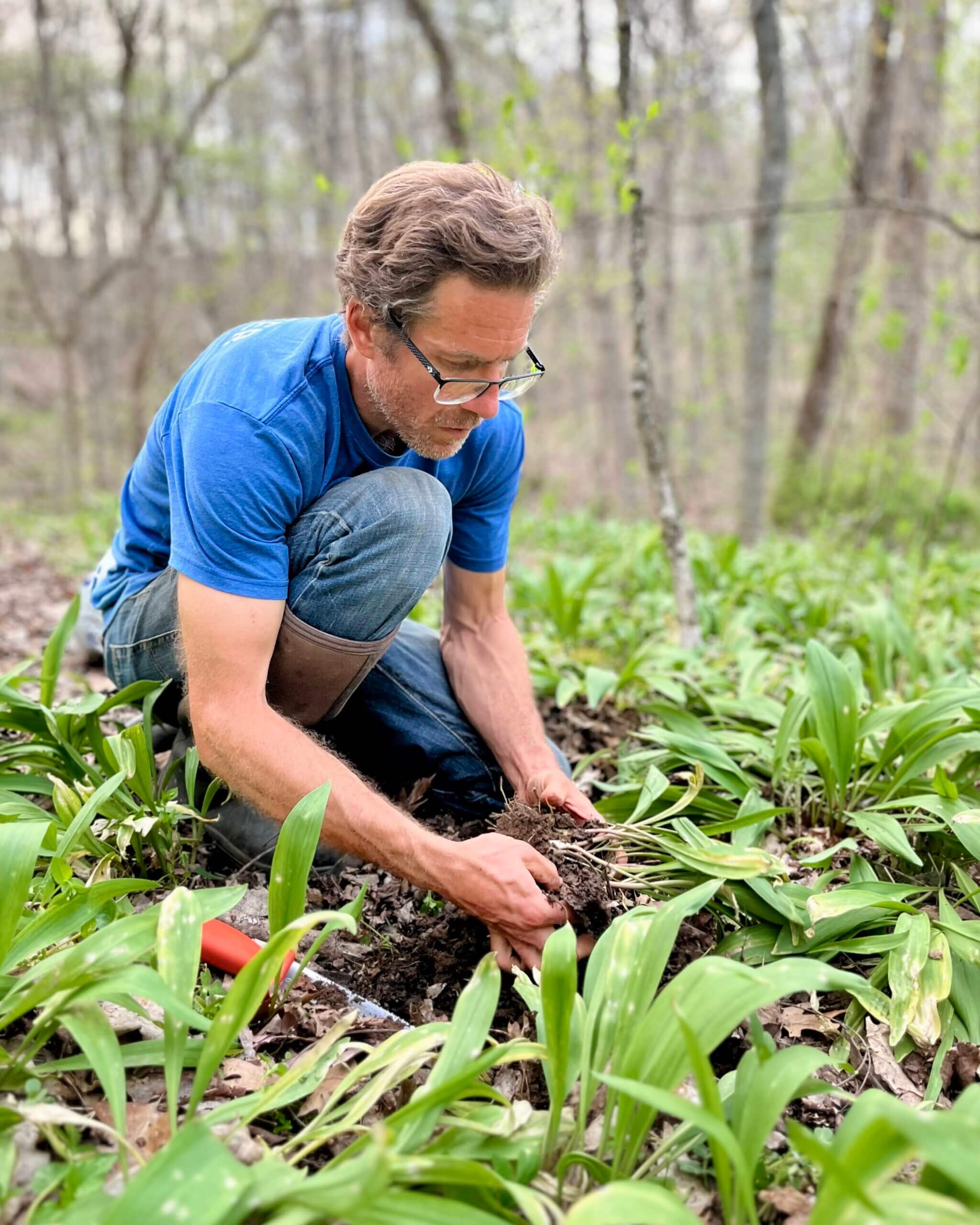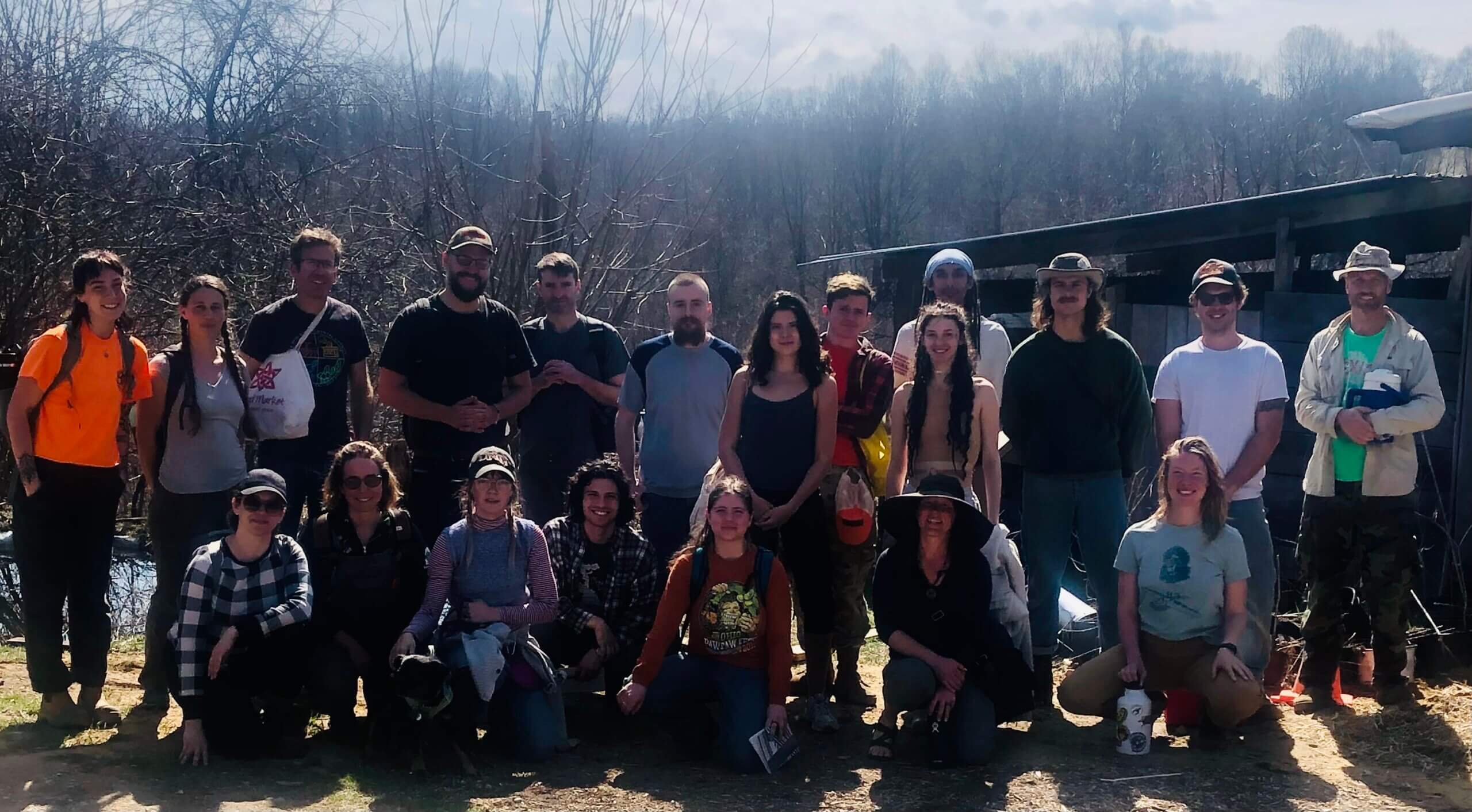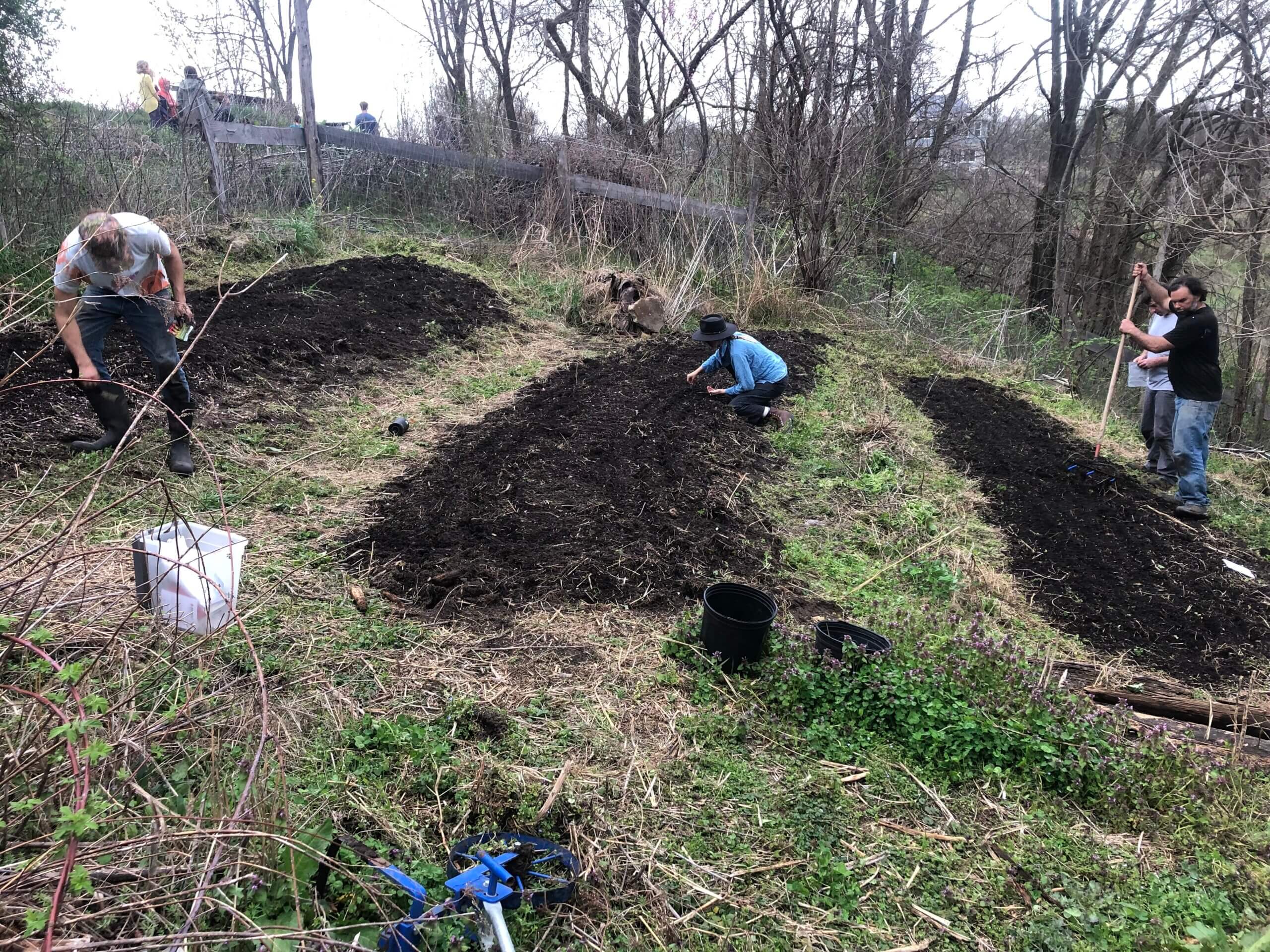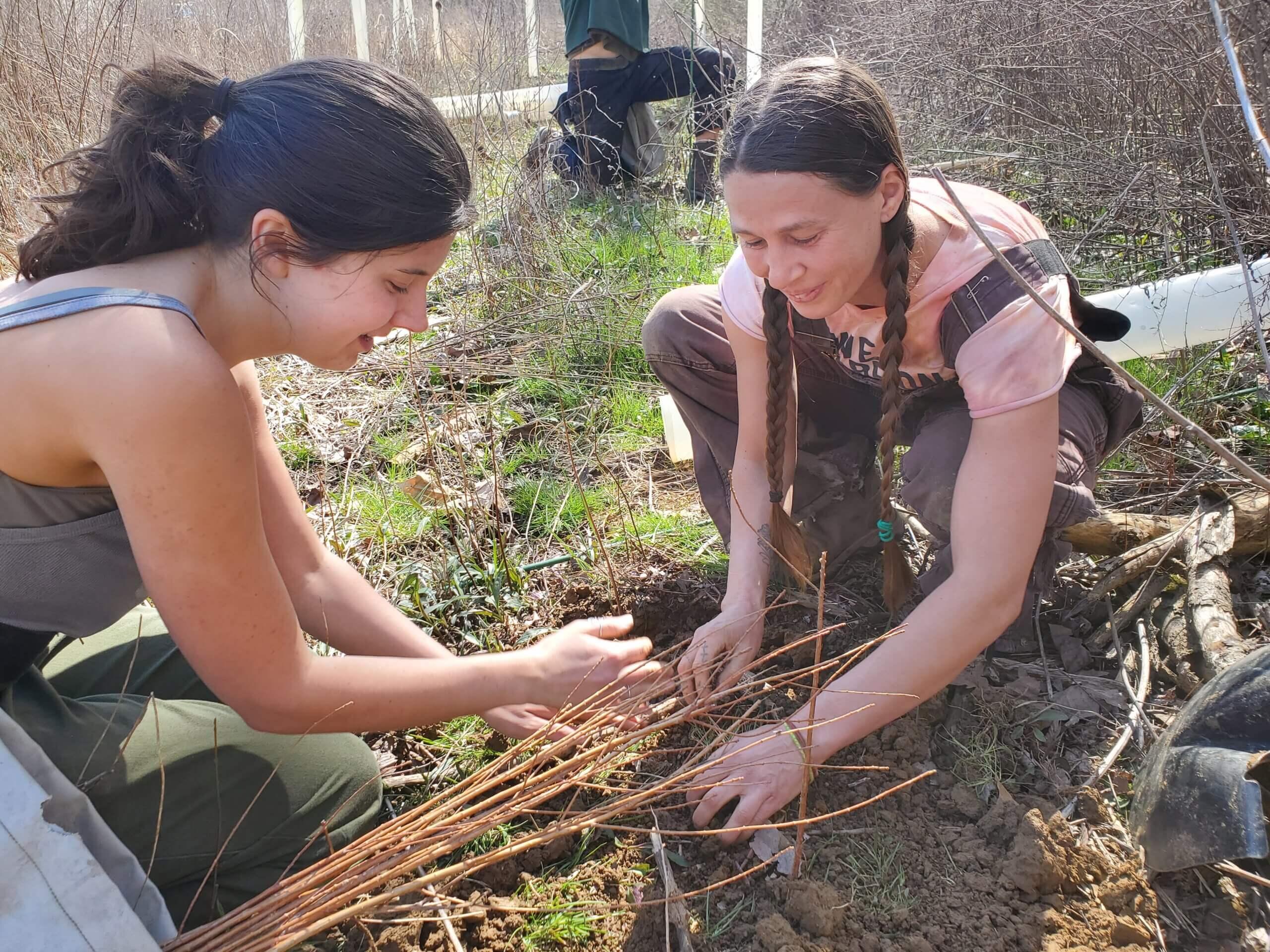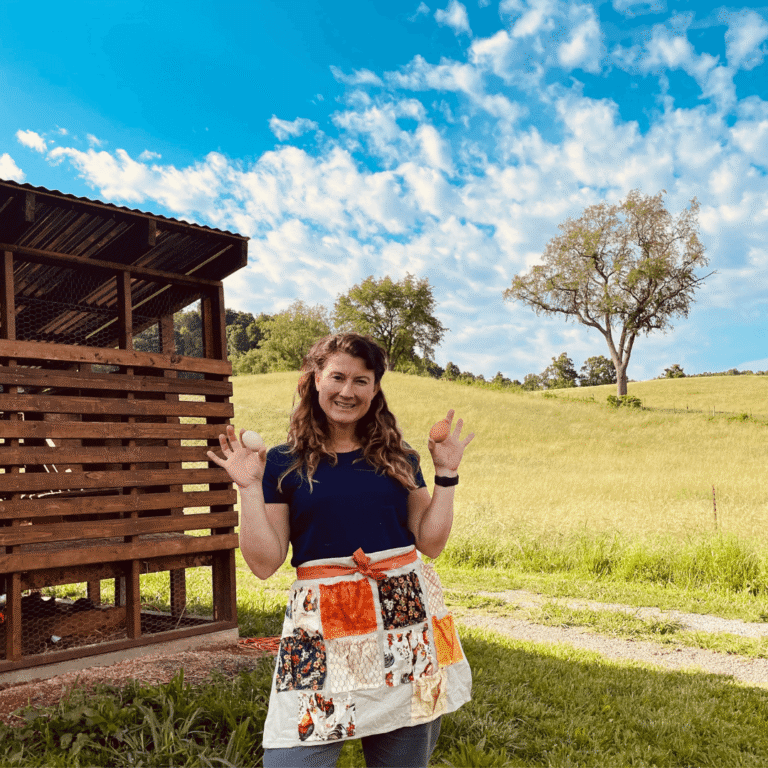Solid Ground Farm’s Apprenticeship Program
Beginning Farmer Working Group (BFWG) participant, Weston Lombard, presented on Solid Ground Farm and its apprenticeship program during BFWG’s June virtual meeting. Solid Ground Farm is a small-scale diversified, sustainable farm and community center in Millfield, Ohio. They host youth outdoor adventure and education programs, sustainable living workshops, school field trips, farm tours, and sustainable agriculture internship programs. It is also home to their place-based elementary education program, Solid Ground School, which currently has about 50 students enrolled. The 17-acre homestead farm is built and run using permaculture principles and natural farming methods, and is home to the region’s largest and most diverse forest garden.
Their current apprenticeship program is funded through a U.S. Forest Service grant, which supports sixteen interns and four mentors. The mentors are past employees and community members, who are working with the apprentices in different areas: agroforestry, sustainable agriculture, natural building, and interpretive education and programming. The first week they were able to work on team building to develop community, which Lombard feels went a long way. It included an obstacle course and challenge initiatives. This allowed them to get to know the people, along with their ambitions and hopes for the program. They were able to tailor the program around what everyone wanted to learn and achieve.
“We are focused on the community building aspect and trying to make people feel like they are a part of this bigger movement, and so everyone has been really energized & enthusiastic. I think that is where we are having a lot of success. Everyone is committed.”
The program is two and a half days a week. A small part of the day is dedicated to lectures and then the different groups break out and work on individual projects, with each day ending with debriefs and sharing. The idea is to build community and pass on land-based skills and knowledge.
“There is a big demand to reconnect to the land and nature. The traditional skills of our society are slipping away, so having these opportunities for people to engage in agriculture and do traditional crafts – I think there is a big market for it. So we are hoping to build upon this momentum and to keep that going.”
Weston shared some of the challenges of working with interns, such as the dramas that can play out in a small group, the ambitions of what will actually get accomplished, and spending more time than expected assisting with training. He encourages others to assess what the value of a program like this would be for you and if it is worth the extra effort. For Solid Ground Farm, they are excited to keep the program going.
Q&A
Q: Do you have an idea of where some of these apprentices might take their learning into the future or what kind of applications whether it’s landscape work, farm work, or what?
A: “Yeah, a few of them are hoping to stay on with us in some capacity and we are trying to make that happen. A few of them are seeking continuing education opportunities, so some of them are looking at graduate school programs or other internships for continued learning. Some of them really want to start their own land based businesses so we are trying to give them as much help as possible in that direction. But all of them seem keen on staying in this sort of field and this sort of work and want more opportunities and want paid jobs. Definitely some will go into landscaping, construction, and the food business in some way or another. A lot of them really like to do the education and the outreach component so we will probably bring them on as camp counselors or something.”
Q: You mentioned both the agencies and the interns getting paid. Do you happen to know how that was done? Is a grant funding the intern stipend and providing money to the farm?
A: Almost the entire budget of this grant went towards wages, so we were able to pay the apprentices an hourly wage and the mentors… I think getting a level of commitment over a long term, paying them seems necessary.
Molly Sowash, one of our BFWG Co-chairs also answered more to the question with: “There are two grants. One Weston wrote for this apprenticeship project and one that Rural Action has with other interns and apprentices. We just write it into the budget as either intern stipend or apprentice stipend. We have two separate [ones] the interns are high school aged and apprentices tend to be a little older and it is for a longer period of time…then we write in a host site stipend.
The BFWG recognizes the cost benefits of funding interns, and apprentices, and how to incorporate host site stipends into grant budgets. Sowash shared that Rural Action currently has funding from an NRCS Cooperative Agreement – Equity in Conservation Outreach program grant.
- The focus is on farm learning and the next generation of farmers.
- The budget in the NRCS grant pays interns $16/hr for 80 total hours and apprentices $20/hr for 480 total hours. The farm hosts are paid $350 per intern.
If you need support in grant writing or budgeting for an on-farm internship or apprenticeship program, reach out to Molly Sowash at molly@ruralaction.org.
If you are in the Southeast Ohio area, Solid Ground Farm will be showing off the great work they have done through the USFS-funded Community Ecology Apprenticeship program these last 6 months on Oct 5th, 2024. Join them for a day of outdoor fun, hands-on learning opportunities, music, tours, local food, and big dreams. Click here for more information.
